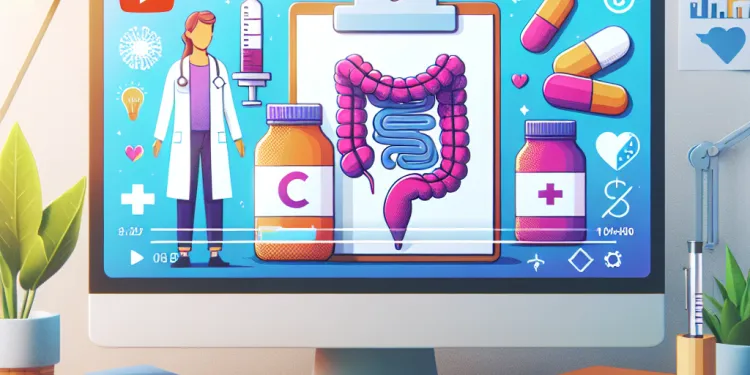
Find Help
More Items From Ergsy search
-
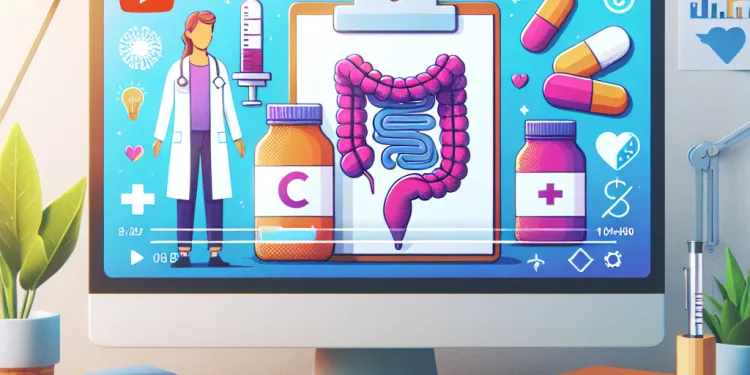
What treatments are available for Crohn's disease?
Relevance: 100%
-

Is there a cure for Crohn's disease?
Relevance: 92%
-

Is Crohn's disease contagious?
Relevance: 90%
-
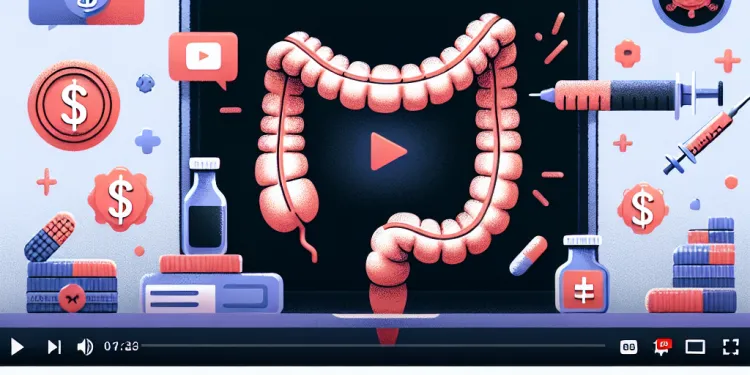
What causes Crohn's disease?
Relevance: 86%
-
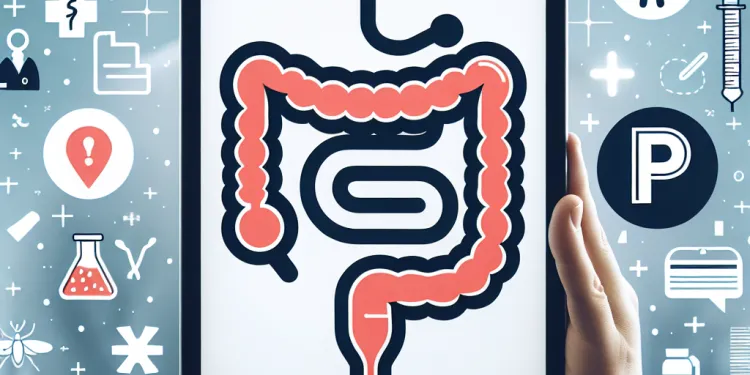
Is surgery necessary for Crohn's disease?
Relevance: 86%
-
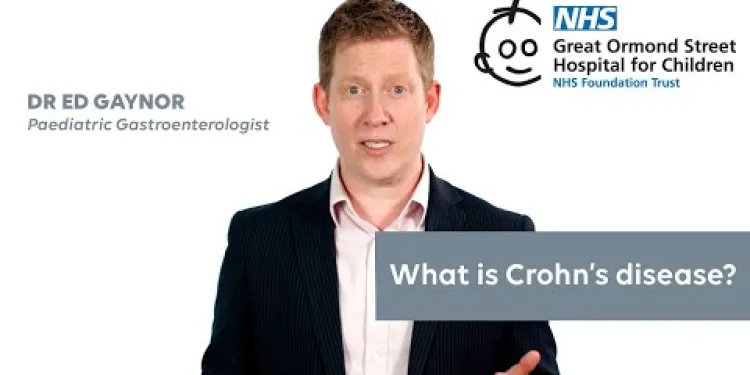
What is Crohn’s disease and how is it treated?
Relevance: 85%
-
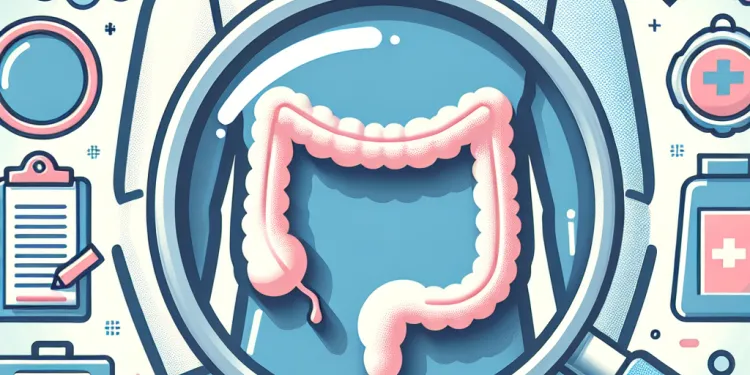
How is Crohn's disease diagnosed?
Relevance: 85%
-

Can children develop Crohn's disease?
Relevance: 85%
-
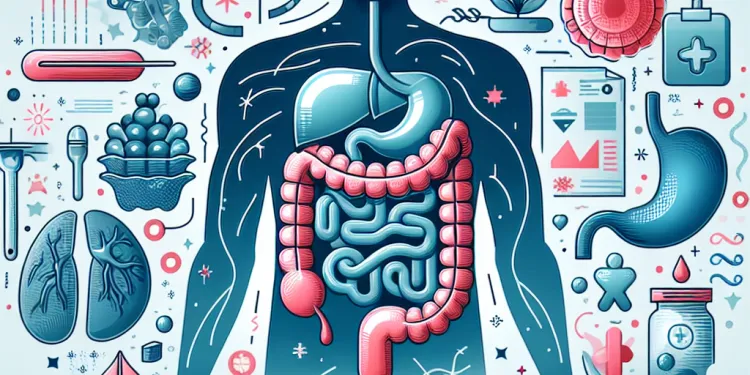
Are there any complications associated with Crohn's disease?
Relevance: 84%
-

How does smoking affect Crohn's disease?
Relevance: 83%
-

What are the common symptoms of Crohn's disease?
Relevance: 82%
-
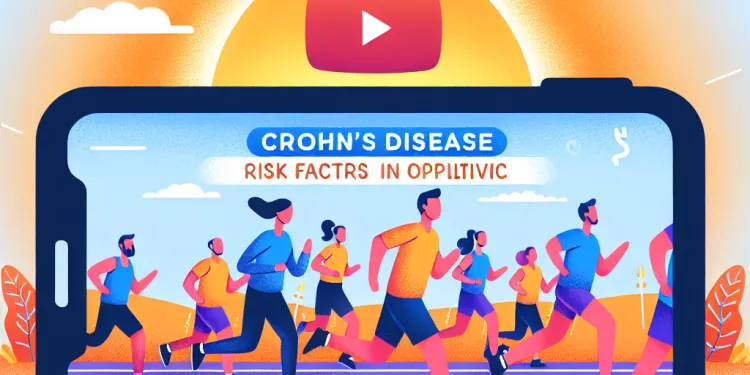
Who is at risk of developing Crohn's disease?
Relevance: 82%
-

What support is available for people with Crohn's disease in the UK?
Relevance: 81%
-

Can stress make Crohn's disease worse?
Relevance: 80%
-

What is the best diet for Crohn’s disease?
Relevance: 79%
-

What dietary changes can help manage Crohn's disease?
Relevance: 72%
-

Infliximab infusion (Remicade) for Crohns Disease at Addenbrookes NHS hospital
Relevance: 70%
-

What treatments are available for Alzheimer's disease?
Relevance: 45%
-
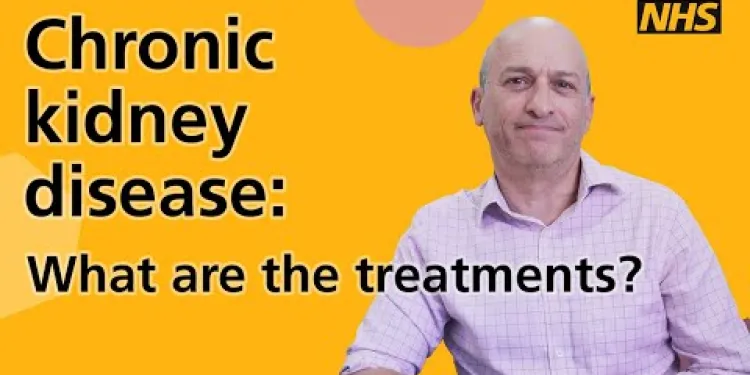
Chronic kidney disease: What are the treatments?
Relevance: 44%
-
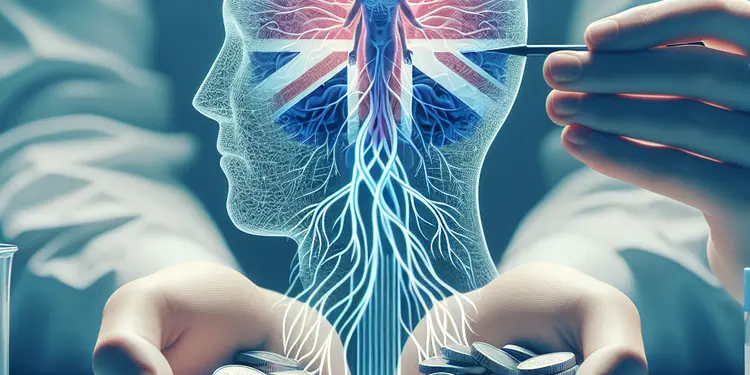
What treatments are available for motor neurone disease?
Relevance: 43%
-

Can flesh-eating disease recur after treatment?
Relevance: 43%
-

Are there treatments available for Huntington's disease?
Relevance: 39%
-
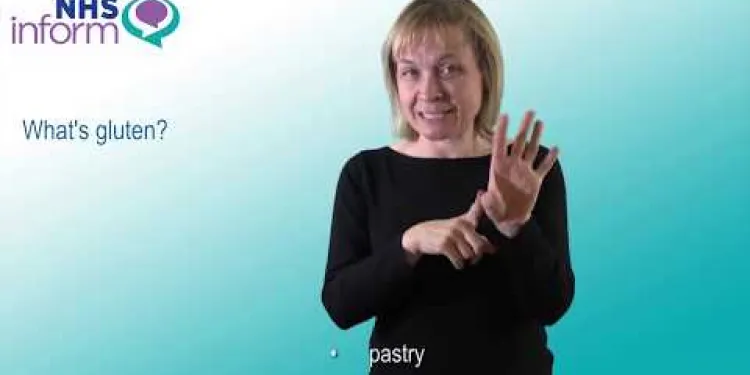
Coeliac disease
Relevance: 34%
-

Can Lyme disease be treated?
Relevance: 33%
-

Liver disease | NHS
Relevance: 33%
-

What is Mitochondrial disease?
Relevance: 33%
-

What is Parkinson's disease?
Relevance: 33%
-
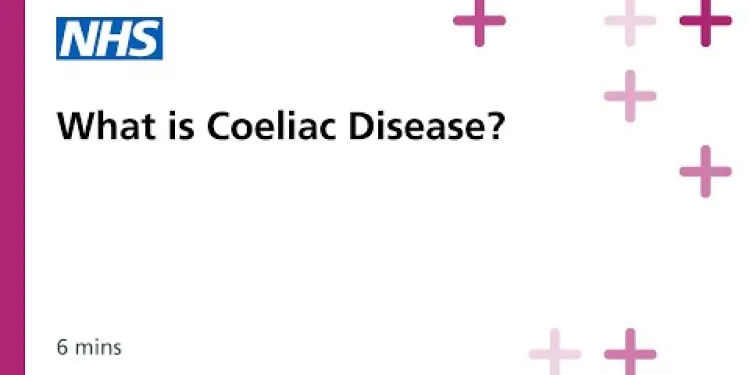
Coeliac Disease: Session 1: What is Coeliac Disease?
Relevance: 33%
-

What is Huntington's disease?
Relevance: 33%
-

What is Alzheimer's disease?
Relevance: 32%
-

Is there a cure for motor neurone disease?
Relevance: 32%
-

What is Lyme Disease?
Relevance: 32%
-

How common is Alzheimer's disease in the UK?
Relevance: 32%
-

Can flesh-eating disease be treated?
Relevance: 32%
-

Can Huntington's disease be cured?
Relevance: 32%
-

What is a flesh eating disease?
Relevance: 32%
-

Is flesh-eating disease contagious?
Relevance: 31%
-

NHSGGC - What is Coeliac Disease?
Relevance: 31%
-

Is Huntington's disease fatal?
Relevance: 31%
-
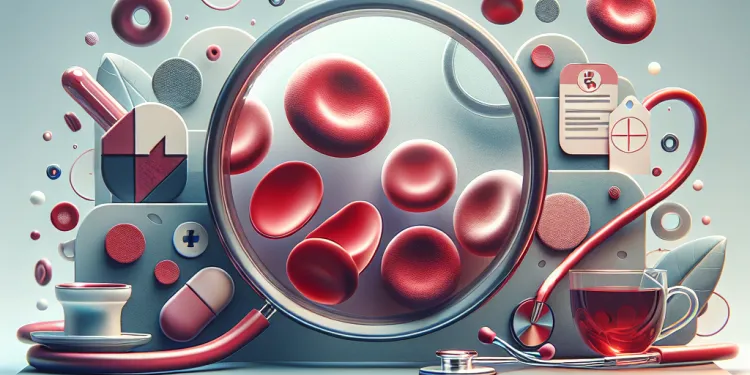
What is sickle cell disease?
Relevance: 31%
Treatments for Crohn's Disease in the United Kingdom
Crohn's disease is a chronic inflammatory condition that affects the gastrointestinal tract. Managing this condition involves various treatment approaches aimed at reducing inflammation, controlling symptoms, and achieving long-term remission. In the UK, the National Health Service (NHS) provides a comprehensive range of treatments for individuals diagnosed with Crohn's disease.
Medications
Medications play a crucial role in managing Crohn's disease. The most commonly prescribed medications include aminosalicylates, corticosteroids, immunomodulators, and biologics. Aminosalicylates, such as mesalazine, are often used in mild cases to reduce intestinal inflammation. Corticosteroids like prednisolone are effective for short-term control of flare-ups due to their anti-inflammatory properties.
For patients not responding to other treatments, biologics such as infliximab and adalimumab are utilized. These biologics target specific components of the immune system to reduce inflammation. Immunomodulators, such as azathioprine and methotrexate, help alter the immune response and maintain remission.
Nutritional Therapy
Nutritional therapy is an essential part of the treatment plan for Crohn's disease, particularly during flare-ups. Exclusive enteral nutrition (EEN), a liquid-only diet, can induce remission by providing intestinal rest and nutrition. It is often used in children but can be beneficial for adults as well. Dieticians will work with patients to develop tailored nutrition plans to manage symptoms and prevent malnutrition.
Surgery
In cases where medical management is insufficient, surgery may be necessary. Surgical interventions can involve resecting diseased sections of the intestine or addressing complications such as strictures and fistulas. The goal of surgery is to improve quality of life and manage complications, although it is not a cure for Crohn's disease. After surgery, many patients find substantial symptom relief.
Complementary and Supportive Therapies
Complementary therapies, including psychological support and lifestyle modifications, play a significant supportive role. Stress management techniques, such as mindfulness and cognitive behavioral therapy (CBT), can help patients cope with the emotional burden of chronic illness. Regular physical activity and smoking cessation are recommended to improve overall health and potentially reduce symptom severity.
Overall, the treatment of Crohn's disease in the UK is multifaceted, involving a combination of medical, nutritional, and sometimes surgical interventions tailored to each patient's unique condition. The emphasis is on managing symptoms, improving quality of life, and maintaining long-term remission.
Treatments for Crohn's Disease in the United Kingdom
Crohn's disease is a long-lasting condition that affects the stomach and intestines. It makes these areas swell and feel sore. Treatments help to reduce the swelling, make the symptoms better, and help people feel well for a long time. In the UK, the National Health Service (NHS) offers many treatments for people with Crohn's disease.
Medications
Medicines are important for treating Crohn's disease. Doctors give different medicines to help. Some common ones are aminosalicylates, corticosteroids, immunomodulators, and biologics. Aminosalicylates, like mesalazine, help with mild swelling in the intestines. Corticosteroids like prednisolone are used to quickly calm down the swelling during a flare-up.
If other medicines do not work, doctors might give biologics like infliximab and adalimumab. These medicines target the immune system to reduce swelling. Immunomodulators, like azathioprine and methotrexate, help keep the swelling away for longer.
Nutritional Therapy
Nutrition is very important when treating Crohn's disease, especially during flare-ups. Sometimes, a special diet called Exclusive Enteral Nutrition (EEN) is used. This is a liquid diet that helps rest the stomach and intestines while giving needed nutrients. Dieticians help patients find the right foods to eat to avoid getting sick or undernourished.
Surgery
Sometimes, medicines alone are not enough, and surgery might be needed. Doctors may remove parts of the sick intestines or fix problems like blockages. Surgery helps patients feel better, but it does not cure Crohn's disease. After surgery, many patients feel a lot better.
Complementary and Supportive Therapies
Other ways to help include emotional support and changing daily habits. Stress-relief methods like mindfulness and cognitive behavioral therapy (CBT) can help patients deal with the stress of having a long-term illness. Exercise and stopping smoking are also good for health and might lower symptoms.
To treat Crohn's disease in the UK, doctors use many approaches. These include medicines, nutritional support, and sometimes surgery. The goal is to manage symptoms, help patients live better, and keep the illness under control for a long time.
Frequently Asked Questions
What medication options are available for treating Crohn's disease in the UK?
Patients in the UK have access to several medications to manage Crohn's disease, including aminosalicylates, corticosteroids, immunomodulators, and biologics such as infliximab and adalimumab.
Are there any surgical treatments for Crohn's disease?
Yes, surgery may be required for Crohn's disease patients who do not respond to medication, develop complications like strictures or fistulas, or have severe symptoms. Surgery might include removing a portion of the digestive tract or correcting complications.
Can diet and nutrition help manage Crohn's disease?
While diet does not cause or cure Crohn's disease, careful attention to nutrition and dietary choices can help manage symptoms and maintain overall health. A registered dietitian can provide personalized advice.
What role do biologics play in treating Crohn's disease?
Biologics, such as infliximab and adalimumab, are used to reduce inflammation and help achieve and maintain remission in moderate to severe Crohn's disease. They target specific components of the immune system.
Are immunosuppressants commonly used for Crohn's disease?
Yes, immunosuppressants like azathioprine and methotrexate help control the immune system and are used to reduce inflammation and maintain remission in Crohn's disease patients.
Is there a cure for Crohn's disease?
Currently, there is no cure for Crohn's disease. However, with proper treatment and management, many patients can achieve long-term remission and lead normal lives.
How do corticosteroids help in managing Crohn's disease?
Corticosteroids like prednisone can reduce inflammation and are often used for short-term flare-up control. They are not suitable for long-term management due to side effects.
What is the role of enteral nutrition in treating Crohn's disease?
Enteral nutrition, involving a liquid diet delivered with a feeding tube or taken orally, can help reduce inflammation and induce remission, especially in children and adolescents.
Are there any new treatments for Crohn's disease under development?
Research is ongoing, and new treatments such as JAK inhibitors and newer biologics are under investigation to provide additional options for patients with Crohn's disease.
How important is regular monitoring in Crohn's disease management?
Regular monitoring with a healthcare provider is essential to assess disease activity, adjust treatment plans, and check for side effects or complications from medications.
Can lifestyle changes impact Crohn's disease symptoms?
Yes, lifestyle changes such as stress management, smoking cessation, and regular exercise can positively impact symptom management and overall well-being in Crohn's disease.
How does stress affect Crohn's disease?
While stress does not cause Crohn's disease, it can exacerbate symptoms or trigger flare-ups. Stress management techniques can be beneficial for patients.
Is complementary medicine effective for Crohn's disease?
Some complementary approaches, like acupuncture or probiotics, may help manage symptoms in some patients, but they should not replace conventional treatments and should be discussed with a healthcare provider.
What support is available for Crohn's disease patients in the UK?
Crohn's disease patients can find support through organizations such as Crohn's & Colitis UK, patient forums, and local support groups, which offer resources and a community network.
Can antibiotics be used to treat Crohn's disease?
Antibiotics like metronidazole or ciprofloxacin can be used to treat infections and specific complications of Crohn's disease, although they are not a primary treatment for the disease itself.
What medicines can help people with Crohn's disease in the UK?
People with Crohn's disease can take medicines to help them feel better. Here are some types of medicines:
- Tablets: These are pills you swallow with water.
- Injections: These are medicines that go into your body with a needle.
- Medicine through a drip: This is when medicine goes into your body slowly through a thin tube.
It is important to talk to a doctor about which medicine is best. They can help find the right medicine for you. Using simple reminders or charts can help keep track of when to take medicine.
In the UK, people with Crohn's disease can use different medicines to help them feel better. These medicines are: aminosalicylates, corticosteroids, immunomodulators, and biologics like infliximab and adalimumab.
Can doctors do an operation for Crohn's disease?
Yes, sometimes doctors can help people with Crohn's disease by doing an operation. This can make some problems better.
Doctors might take out a part of the intestine that is very sick. After that, people can feel better and have less pain.
It is important to talk to a doctor to understand if this is a good choice.
If reading is hard, try using a ruler or your finger to follow the words. You can also ask someone to read with you.
Yes, some people with Crohn's disease might need surgery. This can happen if medicines don't work, or if they have problems like narrow parts or tunnels in their gut. Surgery can help by taking out a part of the tummy area that is causing trouble or fixing problems.
Can what we eat help with Crohn's disease?
Crohn's disease affects the gut. Eating the right food can help you feel better if you have Crohn's.
Some foods might make Crohn's worse. It helps to find out which foods are good for you and which are not.
A doctor or a diet expert can give good advice on what to eat.
Using a food diary can help you keep track of what you eat and how it makes you feel.
There are also special apps to help you track your food. These can be helpful too.
Eating the right foods can help people with Crohn's feel better, but it does not cause or fix the disease. Finding what food works best for you can help with feeling good and staying healthy. You can talk to a diet expert to get advice that is right for you.
How do special medicines help people with Crohn's disease?
Crohn's disease is a tummy illness that makes you feel unwell. Some special medicines, called "biologics," can help stop the sickness from getting worse. These medicines work by calming down the body's reaction that causes pain and swelling.
If you have Crohn's disease, a doctor might give you biologics to help you feel better. They might take a while to work, so it's important to keep taking them as the doctor says.
If you find reading hard, you can use audiobooks to listen to this information, or ask someone you trust to read it to you. A computer program that reads text aloud can also be helpful.
Medicine like infliximab and adalimumab help people with Crohn's disease feel better. They calm down swelling inside the body and help people stay well. These medicines work by focusing on certain parts of the immune system.
Do people with Crohn's disease often take medicine to help their immune system?
Some people with Crohn's disease take special medicine. This medicine helps keep their body's defense system, called the immune system, calm. This can help them feel better.
To make reading easier, try using:
- Large, clear font
- Short sentences
- Bright colors or highlights for important words
Yes, some medicines like azathioprine and methotrexate help calm down the immune system. They are used to stop swelling and help people with Crohn's disease feel better for longer.
Can you make Crohn's disease go away?
Crohn's disease is a sickness that affects the tummy. Right now, there is no way to make it go away forever. But, doctors can help you feel better.
If you have Crohn's and it's hard to understand, ask a grown-up to help you. You can also look at pictures or videos about Crohn's. They help you see what's happening inside your body.
Doctors can give you medicine to help with the pain and other problems. Eating the right foods and resting can also make you feel better.
Right now, there is no way to fix Crohn's disease completely. But, with the right help and care, many people can feel better for a long time and live normal lives.
How do corticosteroids help with Crohn's disease?
Corticosteroids are medicines. They can help people who have Crohn's disease.
What do they do? They help by lowering swelling inside the body. This can help with stomach pain and stop the sickness from getting worse.
If you have Crohn's disease, doctors might give you corticosteroids pills. They also might give you other medicines.
If you need help with reading, you can use a tool that reads the text out loud. Also, someone can explain the text to you.
Corticosteroids, like prednisone, are medicines that can help with swelling. They are used when things get worse suddenly. You should not take them for a long time because they can cause other problems.
What does food through a feeding tube do for people with Crohn's disease?
Crohn's disease can make your tummy hurt and make it hard to eat. Sometimes, doctors use a special way to give you food. This is called enteral nutrition. It's like using a feeding tube to get food straight to your tummy.
This way of eating can help calm down the pain and swelling inside your tummy. It's like giving your tummy a break while still getting the food you need. It can also help you gain weight if you are too thin.
If you have Crohn's disease, ask your doctor how enteral nutrition can help you feel better.
Using pictures or talking to someone about it can also help you understand better.
Enteral nutrition is a special way to eat. You drink a liquid diet or use a feeding tube. It helps make swelling go down and can help kids and teens feel better.
Are there any new treatments for Crohn's disease being worked on?
Crohn's disease is a tummy illness. It makes your tummy hurt and can cause problems with using the toilet. Doctors and scientists are working hard to find new ways to make people feel better.
Some new treatments are being tested. This means doctors are seeing if the new treatments help people with Crohn's disease. They are looking at special medicines and other ways to help.
If you want to learn more, you can ask your doctor. They can tell you about new treatments and how they might help.
Using pictures, simple words, or asking someone you trust to explain things can also help you understand better.
Scientists are working hard to find new medicines for people with Crohn's disease. Some new medicines might help more, like JAK inhibitors and other special medicines. These are being tested now to see if they work well.
Why is it important to check Crohn's disease often?
When someone has Crohn's disease, it is important to go to the doctor regularly. This helps the doctor see how you are doing. It can help catch problems early and keep you healthy.
Using a calendar or setting reminders on a phone can help you remember your doctor visits. Bringing a list of questions to your appointment can also make it easier to talk to your doctor.
It's important to visit your doctor often. This helps everyone know how your illness is doing. The doctor can change your medicine if needed. They will also check if the medicine is working well or causing any problems.
Can changing how you live affect Crohn's disease symptoms?
Yes, changing some things in your life can help with Crohn's disease symptoms. Here are some easy ways:
- Eat healthy food: Choose foods that are easy to digest and avoid spicy or fatty foods.
- Stay active: Gentle exercises, like walking, can help your body feel better.
- Get enough rest: Make sure to sleep well at night so your body can heal.
- Manage stress: Try to stay calm and do things you enjoy to help reduce stress.
Using tools like picture guides or talking to a supportive friend can also help make these changes easier.
Yes, changing your daily habits can help you feel better if you have Crohn's disease. Things like managing stress, quitting smoking, and exercising regularly can make a big difference.
How does stress affect Crohn's disease?
Stress can make Crohn's disease worse. Crohn's is a sickness that makes your belly hurt. When you are stressed, your body feels tired and it can make Crohn's worse. Try to relax to help your body feel better.
Here are some things that can help:
- Talk to someone: Share how you feel with a friend or a family member.
- Relax: Take deep breaths and try to stay calm.
- Exercise: Move your body a little every day, like walking or stretching.
- Rest: Make sure you sleep enough at night.
- Draw or Listen to Music: Doing things you like can help you feel happier.
Stress does not make Crohn's disease start, but it can make it worse. Stress can cause symptoms to get bad or start a flare-up. Learning to manage stress can help people with Crohn's disease feel better.
Does complementary medicine help with Crohn's disease?
Some people with Crohn's disease try different kinds of therapies along with their regular medicine. These are called "complementary medicines." They can include things like special diets, herbs, or acupuncture.
We don't know for sure if they really help Crohn's disease. Always talk to your doctor before trying new treatments.
Tools like easy-to-understand health guides or apps can help you learn more about your condition and treatments.
Some other ways to help, like acupuncture or taking probiotics, might help with feeling better for some people. But these should not be used instead of regular doctor treatments. It's a good idea to talk to a doctor about them first.
What help can people with Crohn's disease get in the UK?
People with Crohn's disease can get help. This help is for their health and feelings.
They can talk to doctors and nurses. These people know a lot about Crohn's disease.
There are groups where people can meet others with Crohn's. They can talk and share tips.
Sometimes there are special classes. These classes teach how to feel better and eat well.
Computers and phones can also help. There are apps to track medicine and health.
Always ask for help if you need it. You are not alone.
People with Crohn's disease can get help from:
- Crohn's & Colitis UK: This is a group that helps people.
- Patient forums: These are online places where people talk and share tips.
- Local support groups: These are groups near you where people meet and support each other.
These groups give information and a chance to make friends.
Using pictures, breaking tasks into small steps, and speaking with a helper can also make things easier to understand.
Can antibiotics help with Crohn's disease?
Crohn's disease affects the gut. It can make you feel sick.
Antibiotics are medicines that kill germs. Doctors sometimes use them for Crohn's disease.
They do not work for everyone. You need to see a doctor for advice.
Here are some ways to better understand this:
- Talk to your doctor.
- Use pictures to learn.
- Ask someone you trust to explain it.
Doctors can use special medicines called antibiotics, like metronidazole or ciprofloxacin, to help treat infections and certain problems caused by Crohn's disease. But these medicines are not the main way to treat Crohn's disease.
Useful Links
This website offers general information and is not a substitute for professional advice.
Always seek guidance from qualified professionals.
If you have any medical concerns or need urgent help, contact a healthcare professional or emergency services immediately.
Some of this content was generated with AI assistance. We’ve done our best to keep it accurate, helpful, and human-friendly.
- Ergsy carfully checks the information in the videos we provide here.
- Videos shown by Youtube after a video has completed, have NOT been reviewed by ERGSY.
- To view, click the arrow in centre of video.
- Most of the videos you find here will have subtitles and/or closed captions available.
- You may need to turn these on, and choose your preferred language.
- Go to the video you'd like to watch.
- If closed captions (CC) are available, settings will be visible on the bottom right of the video player.
- To turn on Captions, click settings .
- To turn off Captions, click settings again.
More Items From Ergsy search
-

What treatments are available for Crohn's disease?
Relevance: 100%
-

Is there a cure for Crohn's disease?
Relevance: 92%
-

Is Crohn's disease contagious?
Relevance: 90%
-

What causes Crohn's disease?
Relevance: 86%
-

Is surgery necessary for Crohn's disease?
Relevance: 86%
-

What is Crohn’s disease and how is it treated?
Relevance: 85%
-

How is Crohn's disease diagnosed?
Relevance: 85%
-

Can children develop Crohn's disease?
Relevance: 85%
-

Are there any complications associated with Crohn's disease?
Relevance: 84%
-

How does smoking affect Crohn's disease?
Relevance: 83%
-

What are the common symptoms of Crohn's disease?
Relevance: 82%
-

Who is at risk of developing Crohn's disease?
Relevance: 82%
-

What support is available for people with Crohn's disease in the UK?
Relevance: 81%
-

Can stress make Crohn's disease worse?
Relevance: 80%
-

What is the best diet for Crohn’s disease?
Relevance: 79%
-

What dietary changes can help manage Crohn's disease?
Relevance: 72%
-

Infliximab infusion (Remicade) for Crohns Disease at Addenbrookes NHS hospital
Relevance: 70%
-

What treatments are available for Alzheimer's disease?
Relevance: 45%
-

Chronic kidney disease: What are the treatments?
Relevance: 44%
-

What treatments are available for motor neurone disease?
Relevance: 43%
-

Can flesh-eating disease recur after treatment?
Relevance: 43%
-

Are there treatments available for Huntington's disease?
Relevance: 39%
-

Coeliac disease
Relevance: 34%
-

Can Lyme disease be treated?
Relevance: 33%
-

Liver disease | NHS
Relevance: 33%
-

What is Mitochondrial disease?
Relevance: 33%
-

What is Parkinson's disease?
Relevance: 33%
-

Coeliac Disease: Session 1: What is Coeliac Disease?
Relevance: 33%
-

What is Huntington's disease?
Relevance: 33%
-

What is Alzheimer's disease?
Relevance: 32%
-

Is there a cure for motor neurone disease?
Relevance: 32%
-

What is Lyme Disease?
Relevance: 32%
-

How common is Alzheimer's disease in the UK?
Relevance: 32%
-

Can flesh-eating disease be treated?
Relevance: 32%
-

Can Huntington's disease be cured?
Relevance: 32%
-

What is a flesh eating disease?
Relevance: 32%
-

Is flesh-eating disease contagious?
Relevance: 31%
-

NHSGGC - What is Coeliac Disease?
Relevance: 31%
-

Is Huntington's disease fatal?
Relevance: 31%
-

What is sickle cell disease?
Relevance: 31%


